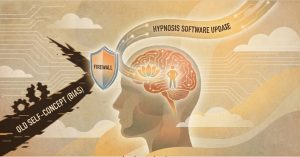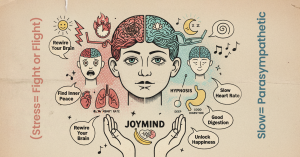For individuals navigating the complexities of cancer, either personally or as a caregiver, the journey can encompass a broad spectrum of challenges, including difficulties with sleep, diminished appetite, anxiety, and other distressing symptoms.
Clinical hypnosis emerges as a promising strategy within the therapeutic landscape, often integrated into counseling sessions to support those affected by cancer. Despite the prevalent misconceptions influenced by its portrayal in entertainment mediums, clinical hypnosis, when facilitated by a qualified mental health professional, offers significant benefits. According to Elkins, Jensen, and Patterson (2007), hypnosis has been demonstrated to mitigate anxiety, enhance coping mechanisms, and even attenuate pain perception, underscoring its value as an adjunctive tool in cancer care (Elkins, G., Jensen, M.P., & Patterson, D.R., 2007). Therefore, hypnosis can be considered a valuable addition to the arsenal of coping strategies.
Unlocking the Subconscious: The Synergy of Focus and Concentration
Contrary to the popular belief that hypnosis compromises an individual’s control, it actually requires an elevated level of focus and concentration. This, in turn, empowers individuals to maintain better command over their emotions and overall well-being (Hammond, D.C., 2010).
The Science: More Than Just Anecdotal Evidence
The transformative potential of hypnosis might appear skeptical to some. However, when applied proficiently, it can significantly enhance one’s mental and emotional health. To illustrate the mind’s influence over physical responses, consider this exercise:
Close your eyes and envision either pickled lemons or sour candy. Imagine their vivid colors, texture, the sound of taking a bite, and immerse yourself in the tangy, sour taste. Engaging with this sensory experience momentarily can prompt a physiological reaction, such as salivation, demonstrating the mind-body connection (Kirsch, I., Montgomery, G., & Sapirstein, G., 1995).
If no immediate reaction is observed, it’s crucial to understand that acquiring proficiency in hypnosis requires practice and patience. Hypnosis is an active and collaborative process between the therapist and the patient, highlighting the importance of mutual engagement in achieving therapeutic goals (Yapko, M.D., 2012).
Engagement in clinical hypnosis is a proactive endeavor, demanding active participation rather than passive reception. It is a collaborative process between the therapist and patient, which, with dedication and patience, can significantly enhance one’s ability to navigate the complexities of cancer treatment and recovery.
At Joymind, our team of hypnotherapists and coaches specializes in guiding individuals through the intricacies of cancer recovery with our Medical Hypnotherapy protocols. We are dedicated to providing expert support, leveraging the transformative power of hypnosis to facilitate healing and resilience. Discover the potential of our tailored approaches in enhancing your journey toward recovery. Explore our services and take a decisive step towards embracing hypnosis as a pivotal component of your coping strategy during this critical phase.
When conducted by certified Clinical Hypnotherapists, it offers considerable benefits, including anxiety reduction, enhanced coping mechanisms, and decreased pain perception. This underscores its potential to significantly improve patient and caregiver wellbeing (Wortzel, J., & Spiegel, D. 2017).
References:
- Elkins, G., Jensen, M.P., & Patterson, D.R. (2007). Hypnotherapy for the management of chronic pain. *International Journal of Clinical and Experimental Hypnosis*, 55(3), 275-287.
- Hammond, D.C. (2010). Hypnosis in the treatment of anxiety- and stress-related disorders. *Expert Review of Neurotherapeutics*, 10(2), 263-273.
- Kirsch, I., Montgomery, G., & Sapirstein, G. (1995). Hypnosis as an adjunct to cognitive-behavioral psychotherapy: A meta-analysis. *Journal of Consulting and Clinical Psychology*, 63(2), 214-220.
- Yapko, M.D. (2012). *Trancework: An Introduction to the Practice of Clinical Hypnosis* (4th ed.). Routledge.
- Wortzel, J., & Spiegel, D. (2017). Hypnosis in Cancer Care. The American journal of clinical hypnosis, 60(1), 4–17.rtf78y

Take the Quiz!
Experience the transformative power of the present moment with Joymind’s unique hypnotherapy approach. Embrace the journey of self-discovery and effective change — start now by taking our Hypnotherapy Quiz and stepping into the empowering world of transformation and growth.
















